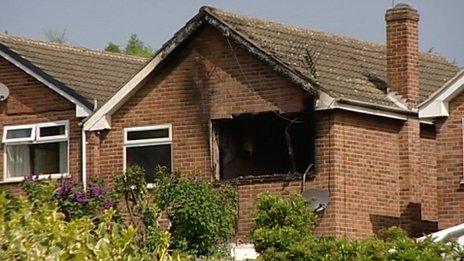Angela Wrightson case: Can children be natural born killers?
- Published

The killers pictured on CCTV returning to Angela Wrightson's house in the early hours of 9 December, 2014. The girls had already assaulted her before going to meet a friend
Two teenage girls have been detained for torturing and murdering a vulnerable woman in north-east England. But when a child deliberately kills, what is to blame? Is it possible some children are simply bad? Or are there other factors at play?
It seems to rip the notion of childhood - a supposed age of innocence - to shreds. We are accustomed to regarding children as in transformation - young people who will eventually shape into a good, bad or indifferent citizen. We do not generally consider them capable of adult crimes such as premeditated murder.
When proved wrong, shockwaves ripple through the fabric of society.
The murder of James Bulger by Robert Thompson and Jon Venables in 1993 is the archetype.
Similarly, the case of 11-year-old Mary Bell who, in 1968, strangled two young boys "solely for the pleasure and excitement of killing", remains in the public memory nearly 50 years on.
Girls sentenced for 'brutal' murder
The friendship that ended in murder
A chaotic life and brutal death
The murder victim and the media blackout
Perhaps the most difficult element to come to terms with is the apparent coldness and calculation of the killings - these were not impulsive tantrums of explosive rage.
This is a factor in the case of Angela Wrightson's killers. The girls were found guilty of murdering her in a sustained attack, inflicting hundreds of injuries over seven hours. They even took an hour's break to visit a friend before returning to Ms Wrightson's house and carrying on, selecting weapons from around the house, including a table, a shovel, broken glass and a stick laced with screws.
The following day they described to friends how Ms Wrightson "begged them to stop" and they laughed, joked and took selfies throughout.
They were 13 and 14.
The murder was almost childlike in its simplicity. Rather like a toddler who smashes down a tower of toy blocks, the girls attacked Ms Wrightson until she was dead.
They made no attempt to cover up their night of violence. In fact, while wearing blood-spattered clothing - and knowing they'd have been reported missing by their foster carers - they even called the police for a lift home.
So what is to blame for cases such as these?
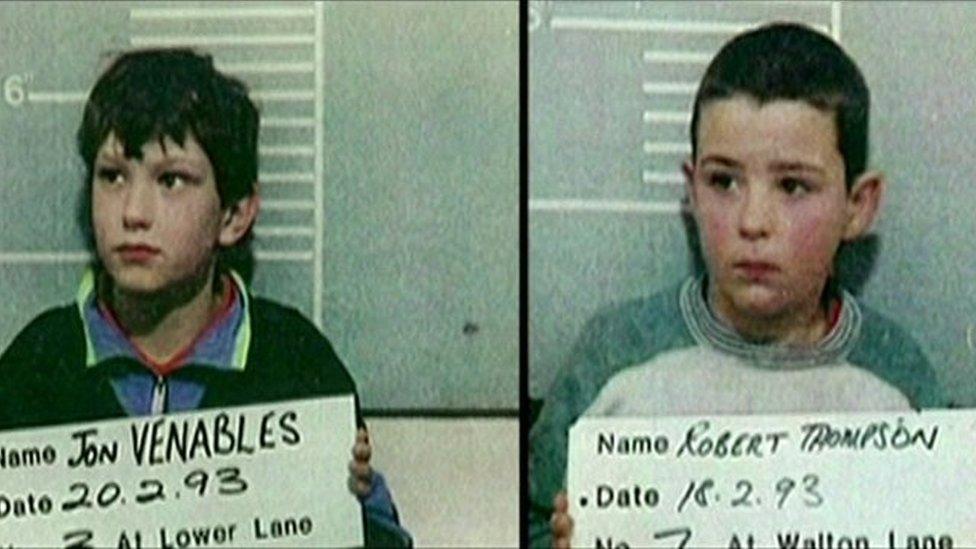
Jon Venables and Robert Thompson murdered toddler James Bulger in Merseyside in 1993
Poor parenting, being failed by authorities and mental illness have all been cited as reasons.
Cleveland Police say "many questions remain unanswered" about the girls' motive - if there was one at all.
Children tend not to murder for the usual reasons of money, love or revenge.
Carol Anne Davis, who in her book Children Who Kill, external profiled killers aged between 10 and 17, said many child killers were the product of difficult home lives.
"Most of the violent children I've researched were raised in deeply dysfunctional homes with parents who were brutal disciplinarians or addicts or religious zealots," she says.
"The children were terrified or neglected or emotionally crushed."
In the case of Ms Wrightson's killers, one of her attackers came from a deeply dysfunctional home while the other had run away from home aged 12 after frequent arguments with her mother.
Their case bears some similarities with that of three teenage boys who, in Liverpool in 2012, murdered a homeless man "for a dare".

Connor Doran, 16, Simon Evans and Brandon Doran, both 14, murdered a homeless man "for a dare"
Connor and Brandon Doran, then aged 16 and 14, and their friend Simon Evans, then 14, were caught on CCTV "roaming the empty streets in the early hours of the morning, looking for trouble" when they came across their victim.
Connor Doran said to Evans: "I bet you haven't got it in you to do him in."
Evans later told a friend: "I started kicking him. I booted him, now he's dead. I kicked him in the head and I stood on his ribs. The noises were terrible."
A judge described a "total lack of parental guidance" in the case. Sentencing them, he said the murder was "a desperately sad reflection on this society that each of you was party to serious violence purely for the sake of it".
The Doran brothers' mother Linda was also jailed for providing a false alibi for her sons. She had previously been prosecuted for failing to send her children to school and police had carried out drugs raids on their home.
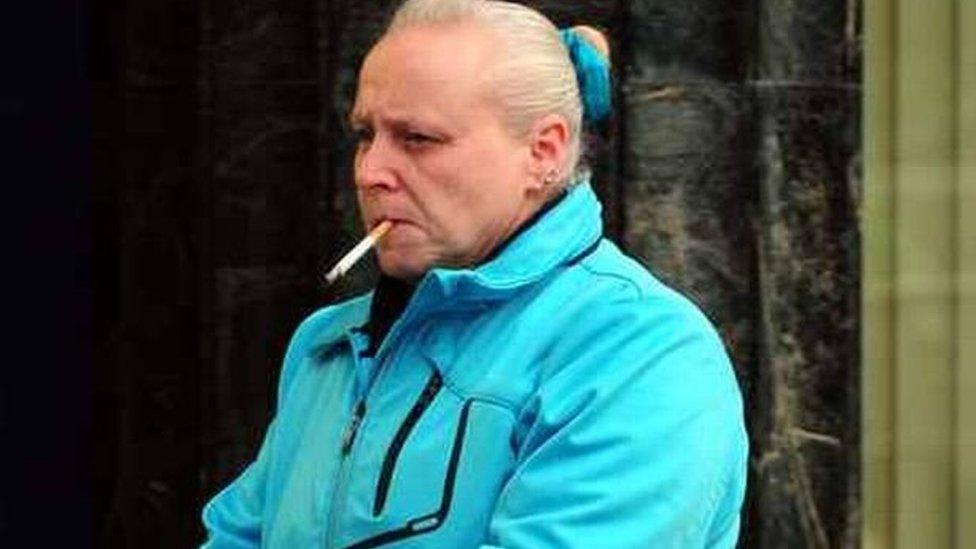
Linda Doran was jailed for providing a false alibi for her sons. The judge called her a "pathetic and tragic character"
The brothers were recipients of multiple anti-social behaviour orders. Another Doran brother, Ryan, was already in prison for a separate murder and a fourth was charged with manslaughter following an arson attack.
The judge went on to tell Linda Doran: "There are not that many mothers who have shown themselves to be either so unwilling or unable to shoulder the responsibility of motherhood as you have. You are a pathetic and tragic character."
But a difficult, disorganised or even abusive upbringing cannot explain why some young people become killers.
Teacher Ann Maguire was stabbed to death by 15-year-old pupil Will Cornick in Leeds in 2014.
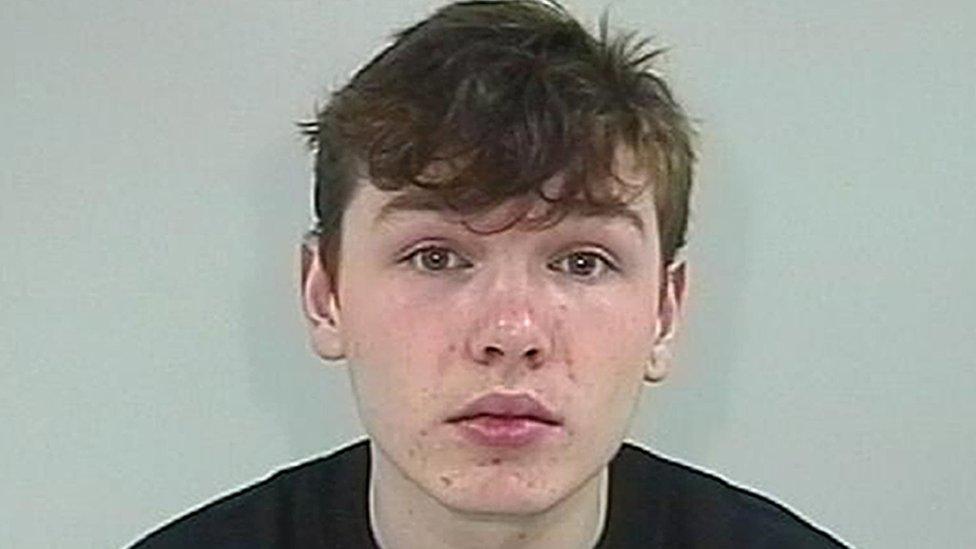
Will Cornick murdered his teacher Ann Maguire in Leeds in 2014. He told a psychiatrist he was "proud" of his actions
Friends described him as a "quiet, typical lad" who was intelligent and did well at school.
The prosecution barrister said his parents were "decent people and responsible parents who are at a loss to understand how and why their son has turned out as he has".
"They have co-operated fully with the police and with the prosecution."
The court heard Cornick showed no remorse, telling a psychiatrist: "I wasn't in shock [after the stabbing], I was happy. I had a sense of pride. I still do."

The cause of psychopathy is unknown, but could include abnormal brain acticity
Dr Elizabeth Yardley, associate professor of criminology at Birmingham City University, said it is possible for children to grow up without a conscience.
"Many experts point to something called psychopathy," she says. "Psychopathy is a collection of negative traits and behaviours - but psychopaths are not mentally ill.
"They are emotionally empty and do not have the same range of complex emotions as the rest of us."
No-one knows what causes psychopathy - it could be a result of brain dysfunction, external, genetics, or because of a lack of interaction with empathetic adults during formative years.
Daniel Bartlam, from Nottingham, was 14 when he killed his mother Jacqui with a claw hammer, hitting her seven times, fracturing her face and skull.
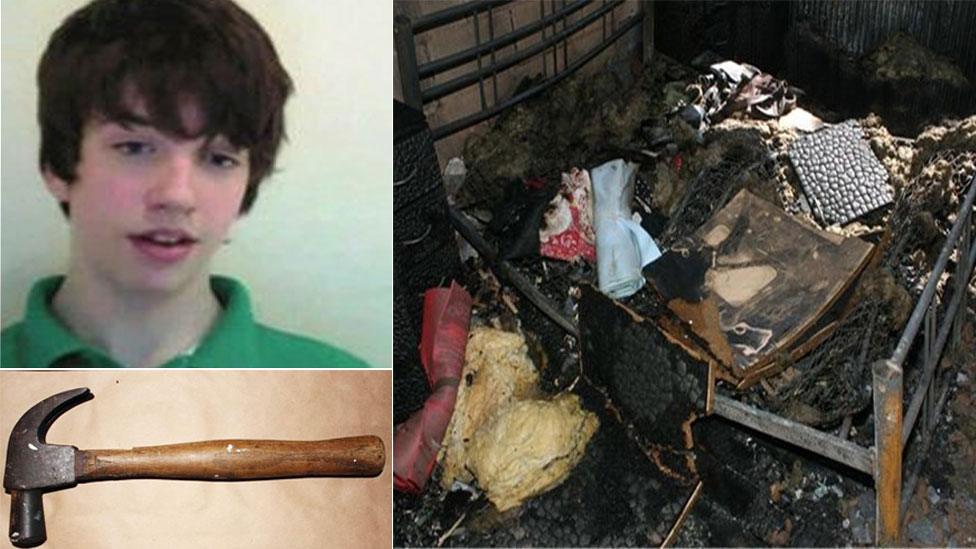
Daniel Bartlam, 14, killed his mother with a claw hammer and then set fire to her body in her bed. He claimed intruders had broken in
He had a privileged upbringing and was privately educated. His mother's partner described him as "intelligent and bright, and fun when he was on form".
Bartlam tried to destroy evidence by putting newspaper around his mother's body, pouring petrol on it and setting it alight. He turned on the gas to make sure the house went up in flames. For months he maintained it was the work of an intruder who had broken in.
But on his computer, police found detailed plans for the attack and how to cover his tracks.
In Bartlam's mind, he was a master criminal who got away with a string of murders, rapes and assaults.
He wrote about his fictional counterpart: "The only place he couldn't get away with his bad deeds was with his mother Jackie. So one evening he made it look as though there was a break-in and murdered his mother with a hammer and then set her and the family home alight."
The only indication Bartlam had such tendencies was his love of violent computer games and videos. Research by the American Psychological Association, external indicated there was "a consistent relation between violent video game use and increases in aggressive behaviour, aggressive cognitions and aggressive affect, and decreases in pro-social behaviour, empathy and sensitivity to aggression".
However, many academics have dismissed the research as "deeply flawed".
Dr Mark Coulson, associate professor of psychology at Middlesex University said: "You would be a fool to deny exposure to repeated violence may have short-term effects - but the long-term consequences of crime and actual violent behaviour, there is just no evidence linking violent video games with that.
"If you play three hours of Call of Duty you might feel a little bit pumped, but you are not going to go out and mug someone."
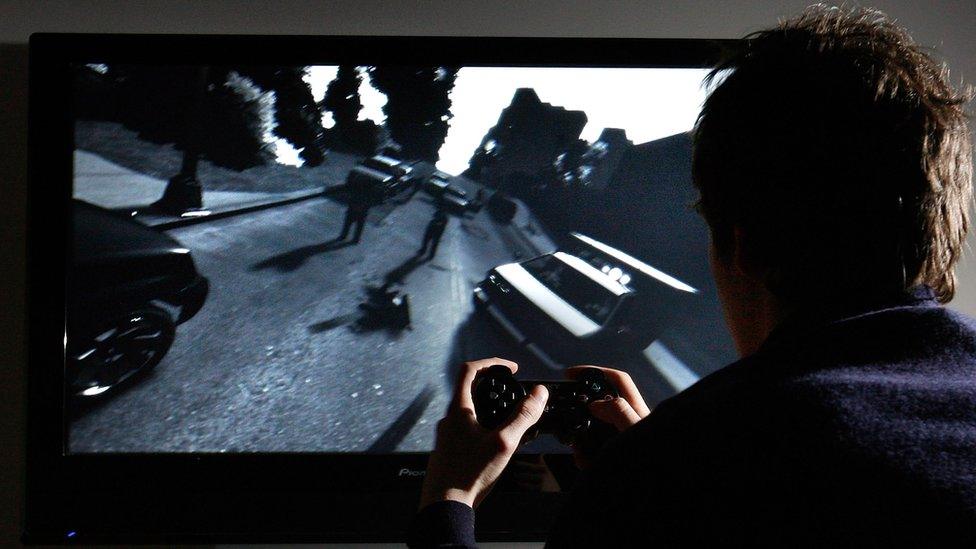
Some research has linked teenage aggression to violent computer games
Brian Masters, who has written the biographies of serial killers Jeffrey Dahmer, Rose West and Dennis Nilsen, pointed out lots of people's parents behave badly but the children do not normally turn into murderers.
However, he does believe a combination of factors can make it more likely someone will kill.
"Is it because they live in a violent society where it doesn't seem to matter so much? No, because they have a capacity to be different, they can choose to go along with the violent society or fight against it," he says.
"Is it because of a psychological disorder? No, that's another excuse.
"But if all these things are combined - if you're badly treated as a child, if you grow up in a violent society, if you've got a psychological disorder - then you don't stand a chance.
"Then the murderer is a victim. But that doesn't mean you feel sorry for them. It means you have attempted to explain very wicked, abhorrent behaviour."
But some crimes, and some criminals, provide nothing to grip on to when making that attempt.
Perhaps trying and failing to understand is as far as we can go.
- Published13 June 2017
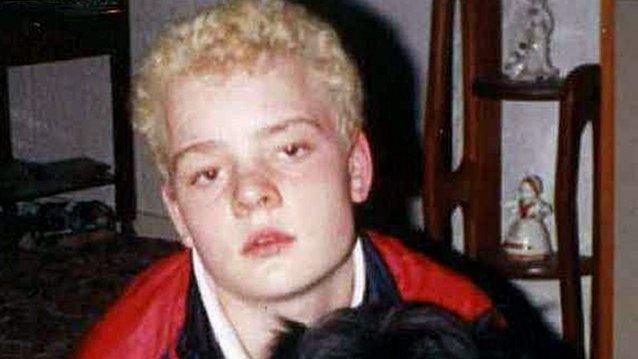
- Published4 July 2013
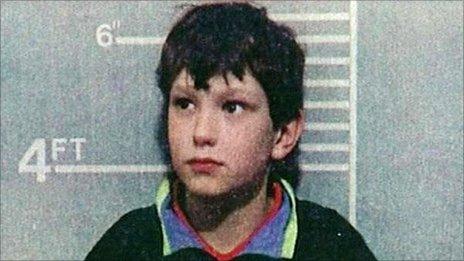
- Published15 April 2013
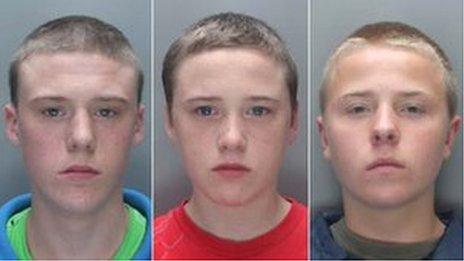
- Published3 November 2014
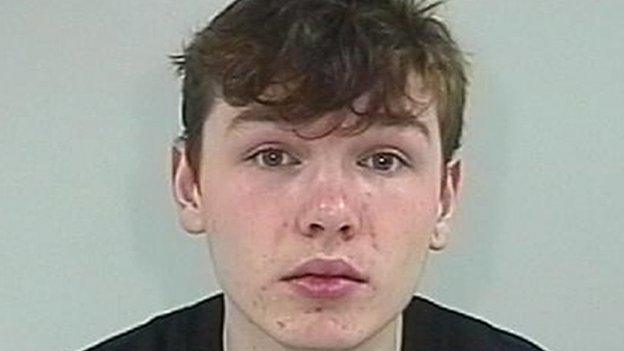
- Published2 April 2012
